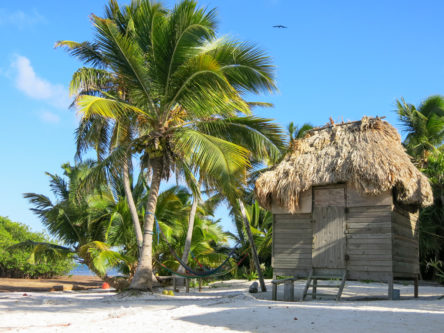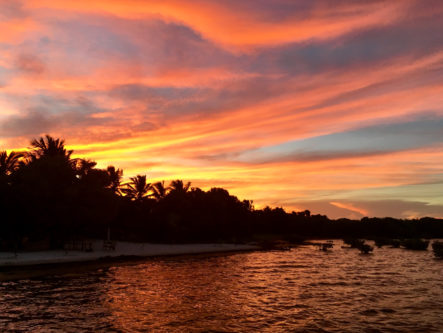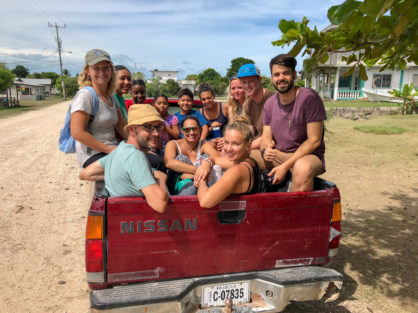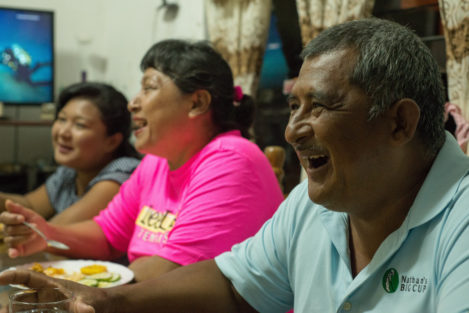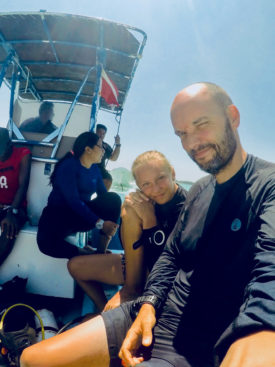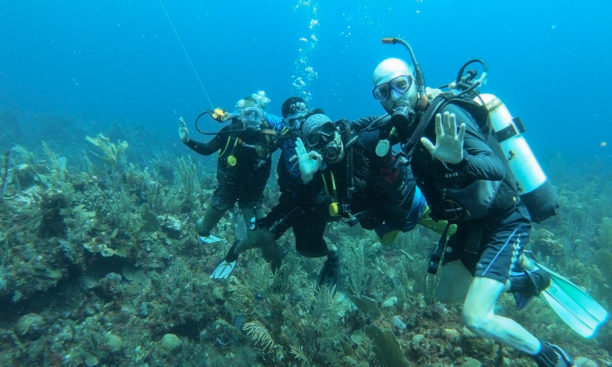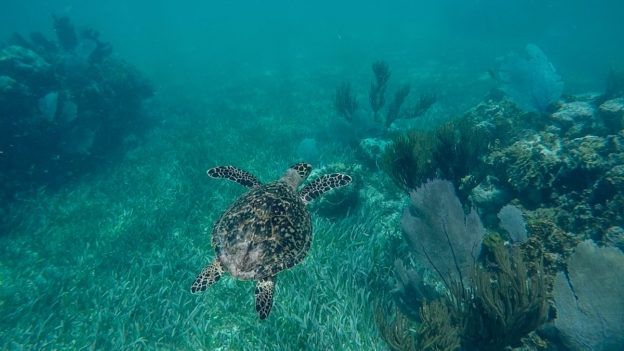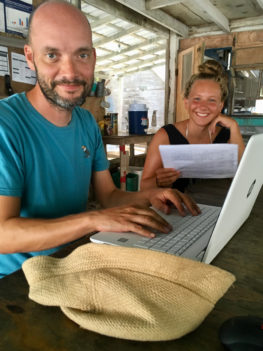As I sit here, looking out at the Bacalar Chico Marine Reserve – the UNESCO World Heritage Site that’s been my home for the last month – I find myself reflecting on my expedition as a whole. It was a desire to do something more meaningful with my time that brought me to Belize, and I can certainly say that my experience with Blue Ventures (BV) has met that objective.
I’ve worked in the IT industry in the UK for 20 years, and decided in March 2018 that I needed to take a break and do something different for a few months. I was a keen snorkeller and avid aquarist in my youth, and have a longstanding interest in marine life, so I wanted to investigate experiences in marine conservation. A BV expedition in Belize, where I knew the marine life to be very diverse, ticked all the right boxes for me.
By the end of my time with my homestay family I really felt at home.
BV puts all their expedition volunteers in touch with each other before they set out, so after touching down in Belize City I met a fellow volunteer in the airport and we travelled together by bus to the small, picturesque fishing village of Sarteneja. Arriving at the BV office we received a warm welcome from Davide, the Expedition Manager, and the rest of the Blue Ventures team, before being introduced to our homestay families.
We would be staying in Sarteneja for the first nine days of the expedition, and living in a homestay allows everyone to get a true flavour for Belizean life. My wonderful hosts Romeo and Elie gave me a warm welcome and a hearty meal after a long day of travelling, and by the end of my time with them I really felt at home. I met many members of their family and improved my Spanish over discussions about their life in Belize and my life in the UK. This culminated in my giving a short presentation in Spanish about my background to all the homestay mothers.
During our time in Sarteneja we spent many enjoyable days in the BV office completing the marine science training we need before going to dive camp in the Bacalar Chico Marine Reserve (BCMR). The main focus of this training was the lionfish, an invasive species in the Caribbean with no natural predators. Voracious, venomous and a prolific breeder to boot, lionfish are outcompeting native fish species and posing a huge threat to Caribbean reefs and fisheries. Our task at dive camp would be to gather data on the number of lionfish at each survey site, and compare it with the number of native competitor species (or “priority” species) such as tiger groupers, black groupers and cubera snappers.
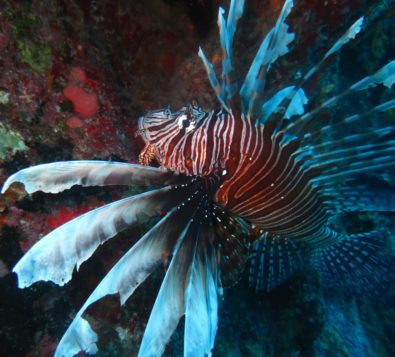
Voracious, venomous and a prolific breeder to boot, lionfish are outcompeting native fish species and posing a huge threat to Caribbean reefs and fisheries.
Led by BV’s very knowledgeable field scientists, we were taught how to identify each priority species, accurately measure their size and record their behaviour. We initially practiced these techniques on land, before perfecting our new skills in the water. These enjoyable training days were supplemented with a field trip to WildTracks, a local manatee and monkey rescue centre, where we learnt more about Belizean wildlife.
After bidding a fond farewell to our homestay families, we boarded a boat bound for BV’s remote dive camp within the BCMR, our base for the rest of the expedition. The volunteers were all split into two groups: those with previous scuba diving experience, and those without. I appreciated this division, as it allowed the more experienced divers to move straight onto the marine surveys while the new divers, myself included, could concentrate on gaining their certifications with less pressure.
We were joined in our dive training by two members of Belize’s Department of Fisheries, due to their training partnership with BV. They quickly became fully integrated into the group and gave us volunteers a unique and fascinating perspective on the marine conservation and resource management efforts being carried out in Belize.
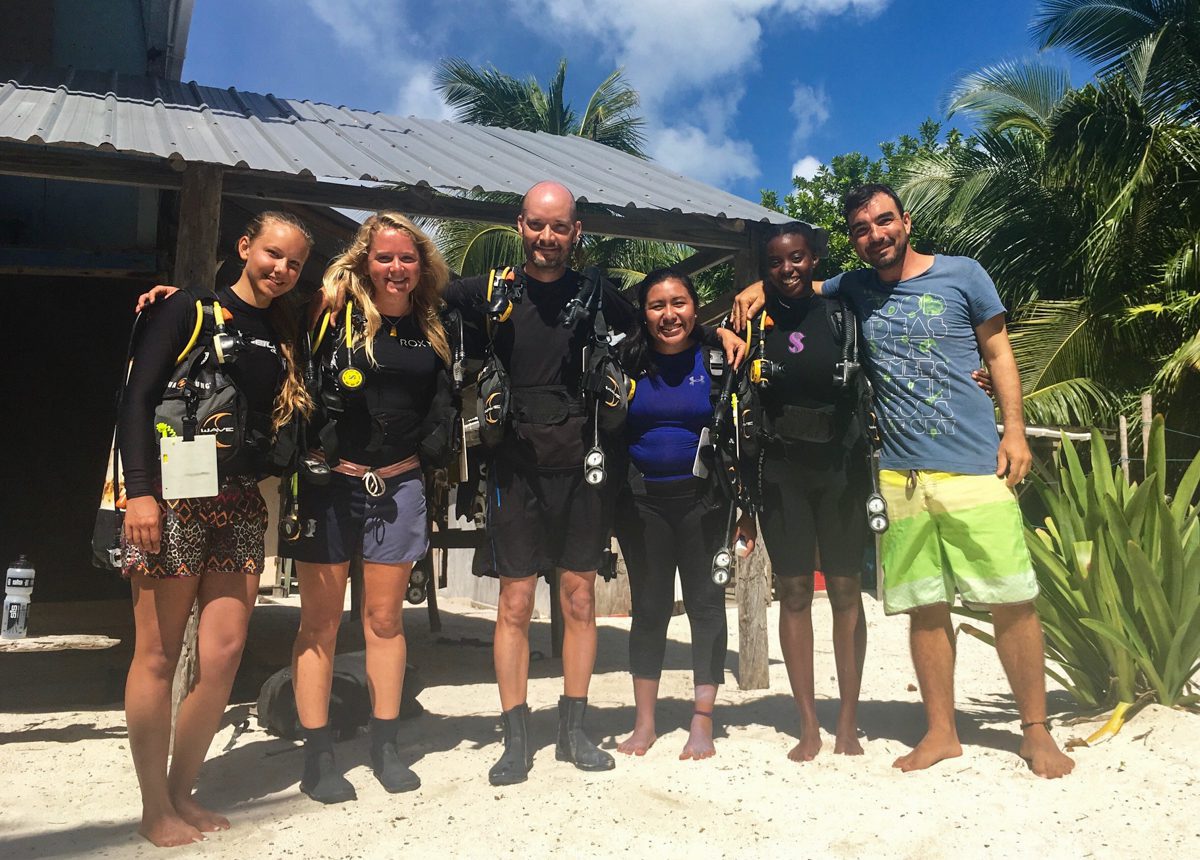
Open water trainees Mark Jones and Maxie Resch with the BV team.
Once the dive training was complete, it was time to start surveying the Belize Barrier Reef! After a number of practice surveys we completed our first official site survey, diving the site three times over the course of a day. This quickly became the norm and, although a full day of surveying is pretty tiring, it’s an incredible experience getting to dive in such beautiful locations with such a diverse range of fish and coral species (and the occasional turtle!). Recording ecosystem data for BV is also a rewarding experience in itself, as these data go straight into reports monitoring the health of the BCMR. A tangible product of the hard work of BV’s staff and volunteers.
As well as the dive and science staff, BV’s dive camp is reliant on the chef Victor (who always provides a nourishing meal at the end of a dive), boat captains Manny, Elgar, Nico and Roberto, and watchmen Shelo and Chalo. During the latter stages of the expedition we were also joined by BV’s new Science Officer Celso, who quickly became a vital member of the team, and a permanent fixture at our numerous card playing evenings!
Progress has been slightly hindered by less than favourable weather conditions, but as we enter the final week at dive camp we’ve successfully surveyed six sites, and are planning additional conch shell surveys for this week prior to the start of the Belizean conch fishing season. Going from having never dived before to having completed numerous underwater reef surveys has been an inspirational experience. Being able to identify and size the numerous priority species in the BCMR has fully engaged all the volunteers on this expedition, and given me a strong desire to further increase my skills and knowledge in this field.
Finally, I’d like to say that the people I have met, be they BV staff, volunteers, or fisheries department staff, were all a big part of the success of the expedition, and have all helped make my experience thoroughly enjoyable.
Experience the Bacalar Chico Marine Reserve for yourself and join a Belize expedition


